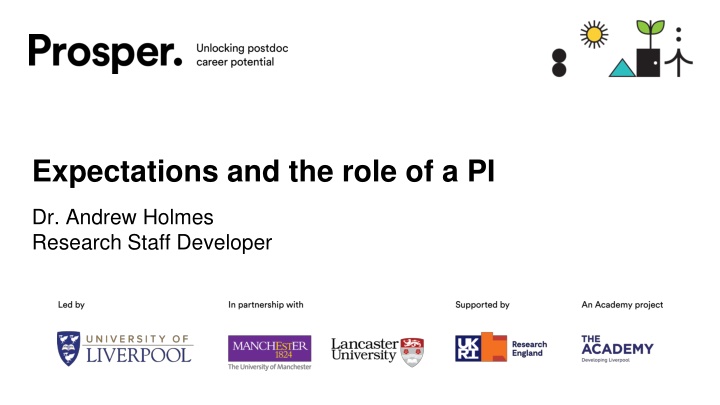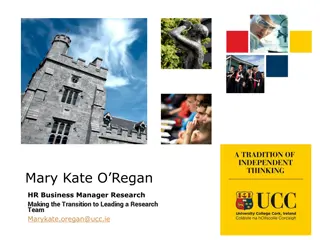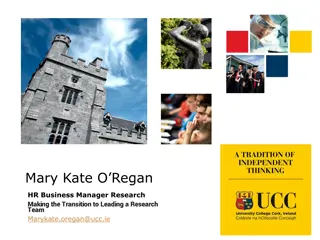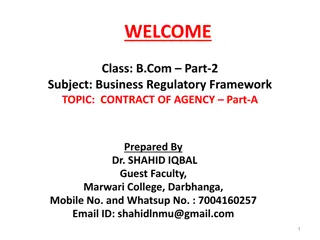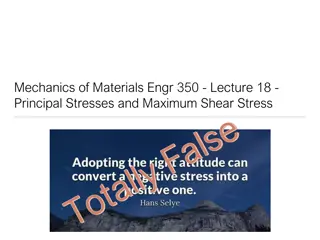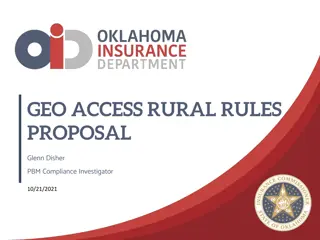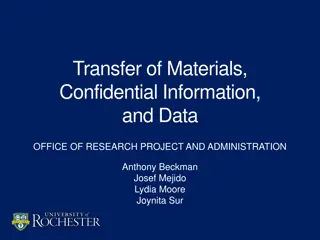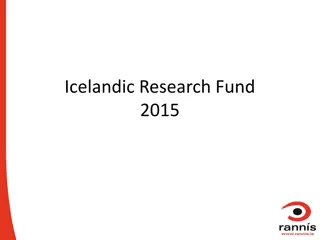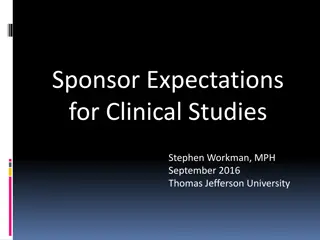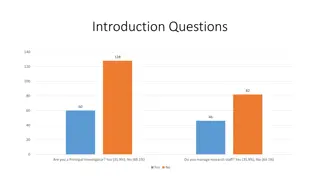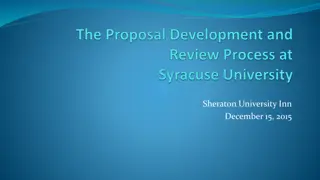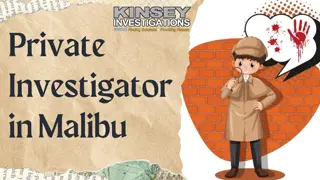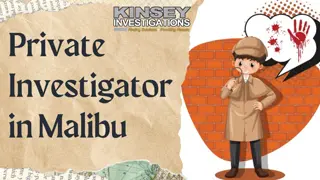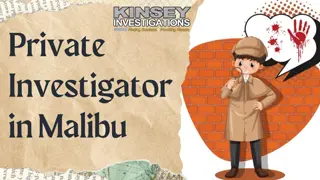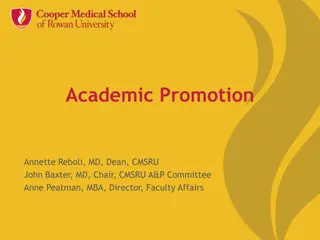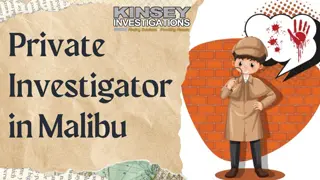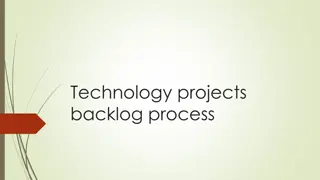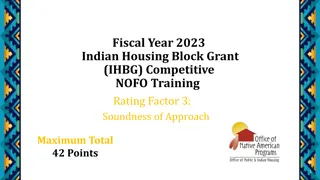The Role of a Principal Investigator in Research Projects
The Principal Investigator (PI) plays a crucial role in research projects, responsible for scientific direction, project management, staff development, fundraising, public engagement, and more. This task involves a diverse range of responsibilities, from overseeing research projects to mentoring students and managing administrative duties.
Download Presentation

Please find below an Image/Link to download the presentation.
The content on the website is provided AS IS for your information and personal use only. It may not be sold, licensed, or shared on other websites without obtaining consent from the author.If you encounter any issues during the download, it is possible that the publisher has removed the file from their server.
You are allowed to download the files provided on this website for personal or commercial use, subject to the condition that they are used lawfully. All files are the property of their respective owners.
The content on the website is provided AS IS for your information and personal use only. It may not be sold, licensed, or shared on other websites without obtaining consent from the author.
E N D
Presentation Transcript
Expectations and the role of a PI Dr. Andrew Holmes Research Staff Developer
What is the role of a PI? Definitions vary the individual designated by the grantee, and approved by NSF, who will be responsible for the scientific or technical direction of the project (from the National Science Foundation (NSF) https://www.nsf.gov/pubs/policydocs/pappguide/nsf10_1/) The Principal Investigator takes responsibility for the intellectual leadership of the research project, for the overall management of the research and for the management and development of researchers UK Concordat to Support the Career Development of Researchers (Vitae, 2008).
Role of the PI put another way As the head of a lab, you are responsible for fundraising, fund managing, purchasing materials and equipment (some of which is extremely specialist, even unique), training and managing staff working with dangerous materials, publicizing the current research, and planning future research... Project management Fundraising Fund/budget management Horizon scanning Requisition management Training and managing people From J S Tregoning and J E McDermott (2020) Ten Simple Rules to becoming a principal investigator PLOS Computational Biology,16, 2, pp. 4. Public engagement
Role of the PI put another waycontinued As a teacher you are expected to inspire and educate the next generation with a range of teaching styles that are appropriate for either 300 students in a lecture or for a single student, as a mentor... Project management Fundraising Fund/budget management Horizon scanning Requisition management Communication Teaching Training and managing people From J S Tregoning and J E McDermott (2020) Ten Simple Rules to becoming a principal investigator PLOS Computational Biology,16, 2, pp. 4. Public engagement
Role of the PI put another waycontinued On top of this, you are expected to help with the administration of a large complex organization with upwards of 10,000 staff. Hiring good people can help to distribute some of this load. Project management Fundraising Fund/budget management Horizon scanning Requisition management Communication Teaching Training and managing people Administrative duties From J S Tregoning and J E McDermott (2020) Ten Simple Rules to becoming a principal investigator PLOS Computational Biology,16, 2, pp. 4. Public engagement Hiring/recruitment
Expectations - Researcher Development Concordat Agreement between stakeholders to improve the employment and support for researchers and researcher careers in higher education in the UK Stakeholders: Funders, Institutions, Researchers and Managers of Researchers. Three principles: Environment and Culture Employment Professional and Career Development UK Concordat to Support the Career Development of Researchers (2019) https://researcherdevelopmentconcordat.ac.uk/
Researcher Development Concordat Institutions 1. Provide opportunities, structured support, encouragement and time for researchers to engage in a minimum of 10 days professional development pro rata per year, recognising that researchers will pursue careers across a wide range of employment sectors. 2. Provide training, structured support, and time for managers to engage in meaningful career development reviews with their researchers. UK Concordat to Support the Career Development of Researchers (2019) https://researcherdevelopmentconcordat.ac.uk/
Researcher Development Concordat PIs 1. Engage in regular career development discussions with their researchers, including holding a career development review at least annually. 2. Support researchers in exploring and preparing for a diversity of careers, for example, through the use of mentors and careers professionals, training, and secondments. 3. Allocate a minimum of 10 days pro rata, per year, for their researchers to engage with professional development, supporting researchers to balance the delivery of their research and their own professional development. UK Concordat to Support the Career Development of Researchers (2019) https://researcherdevelopmentconcordat.ac.uk/
Researcher Development Concordat Postdocs 1. Take ownership of their career, identifying opportunities to work towards career goals, including engaging in a minimum of 10 days professional development pro rata per year. 2. Explore and prepare for a range of employment options across different sectors, such as by making use of mentors, careers professionals, training and secondments. 3. Maintain an up-to-date professional career development plan and build a portfolio of evidence demonstrating their experience, that can be used to support job applications. 4. Positively engage in career development reviews with their managers. UK Concordat to Support the Career Development of Researchers (2019) https://researcherdevelopmentconcordat.ac.uk/
Where do postdocs look for career advice? Woolston, C. (2020) Uncertain prospects for postdoctoral researchers , Nature, 588, 181-184. https://doi.org/10.1038/d41586-020-03381-3
Perspectives from postdocs Share their experience of how they became a PI. Keep track of former postdocs, what they've gone on to do to use as examples for alternative careers. Belief in my skills and how these can translate to success outside of academia. Separate to work catch ups and PDRs, regular meetings (every 3 months?) focusing on PDRA's career, aspirations, mental health etc. Not making career conversations weirdly formal compared to other interactions. Quotes from anonymous postdocs.
Expectations for PIs PIs are NOT expected to be career coaches PIs don t have to know everything, they could know what they don t know and know where to point you. Anonymous postdoc Not expected to do or know everything.
Thank you for your time! Except where otherwise noted, this work is licensed under the Creative Commons Attribution-NonCommercial-ShareAlike 4.0 International License. To view a copy of this license, https://creativecommons.org/licenses/by-nc-sa/4.0/ For more information, visit: liv.ac.uk/prosperproject Get in touch: prosper.postdoc@liverpool.ac.uk Follow us on Twitter: @ProsperPostdoc Visit the Prosper Portal: https://prosper.liverpool.ac.uk
